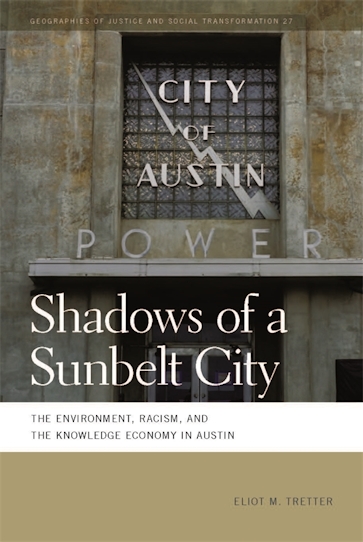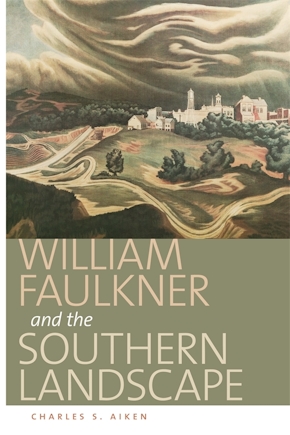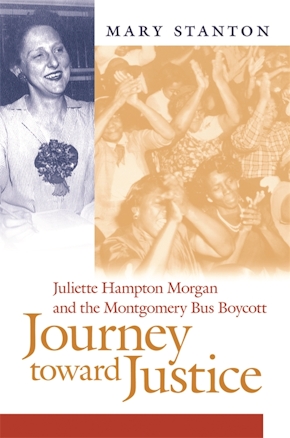Shadows of a Sunbelt City
The Environment, Racism, and the Knowledge Economy in Austin
Title Details
Pages: 192
Trim size: 6.000in x 9.000in
Formats
Hardcover
Pub Date: 03/15/2016
ISBN: 9-780-8203-4488-1
List Price: $120.95
Paperback
Pub Date: 03/15/2016
ISBN: 9-780-8203-4489-8
List Price: $25.95
eBook
Pub Date: 03/15/2016
ISBN: 9-780-8203-4909-1
List Price: $25.95
Shadows of a Sunbelt City
The Environment, Racism, and the Knowledge Economy in Austin
A counternarrative to a popular perception of Austin as a progressive city
Skip to
- Description
- Reviews
Austin, Texas, is often depicted as one of the past half century’s great urban successstories—a place that has grown enormously through “creative class” strategies emphasizing tolerance and environmental consciousness. In Shadows of a Sunbelt City, Eliot Tretter reinterprets this familiar story by exploring the racial and environmental underpinnings of the postindustrial knowledge economy. He is particularly attentive to how the University of Texas—working with federal, municipal, and private-sector partners and acquiring the power of eminent domain—expanded its power and physical footprint. He draws attention to how the university’s real estate endeavors shaped the local economy and how the expansion and upgrading of the main campus occurred almost entirely at the expense of the more modestly resourced communities of color that lived in its path.
This book challenges Austin’s reputation as a bastion of progressive and liberal values, notably with respect to its approach to new urbanism and issues of ecological sustainability. Tretter’s insistence on documenting and interrogating the “shadows” of this important city should provoke fresh conversations about how urban policy has contributed to Austin’s economy, the way it has developed and changed over time, and for whom it works and why. Joining a growing critical literature about universities’ effect on urban environments, this book will be of interest to students at all levels in urban history, political science, economic and political geography, public administration, urban and regional planning, and critical legal studies.
—Yonn Dierwechter, author of Urban Growth Management and Its Discontents: Promises, Practices, and Geo-politics in U.S. City Regions
—Alex Sayf Cummings, Journal of Social History
—Michan Connor, Journal of Southern History
—Andrew M. Busch, Southern Spaces



